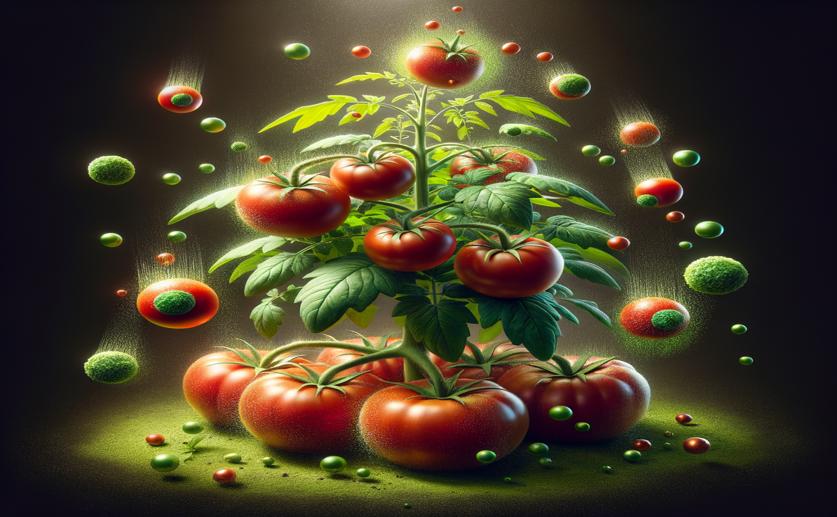
Boosting Tomato Growth and Health with Green Iron Oxide and Magnetic Nanobiochar
Jim Crocker
30th May, 2024

Image Source: Natural Science News, 2024
Key Findings
- The study was conducted in Egypt to address root-knot nematode infestations in tomato plants
- Green nanoparticles significantly improved tomato plant growth and increased beneficial phytochemicals
- The nanoparticles reduced the number of root-knot nematodes, enhancing plant health and productivity
AgricultureBiotechPlant Science
References
Main Study
1) Green iron oxide nanoparticles and magnetic nanobiochar: enhancing tomato performance, phytochemicals, and root-knot nematode resistance
Published 29th May, 2024
https://doi.org/10.1186/s12870-024-05131-3
Related Studies
2) Green Synthesis of Iron Oxide (Hematite) Nanoparticles and Their Influence on Sorghum bicolor Growth under Drought Stress.
3) Coping with the Challenges of Abiotic Stress in Plants: New Dimensions in the Field Application of Nanoparticles.
4) Biogenic synthesis of iron oxide nanoparticles via Skimmia laureola and their antibacterial efficacy against bacterial wilt pathogen Ralstonia solanacearum.
5) Synergistic and antagonistic interactions of terpenes against Meloidogyne incognita and the nematicidal activity of essential oils from seven plants indigenous to Greece.



 17th May, 2024 | Greg Howard
17th May, 2024 | Greg Howard